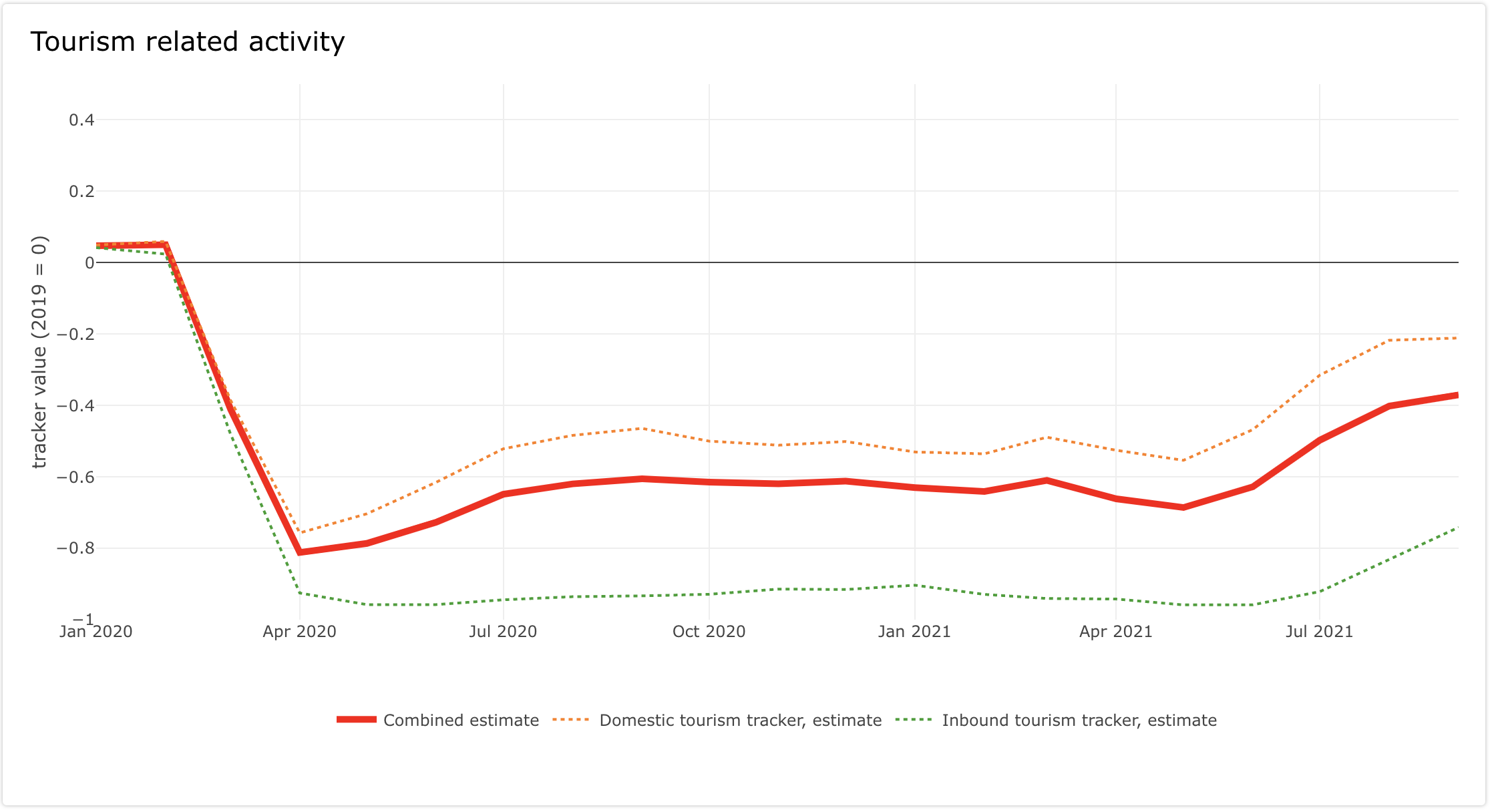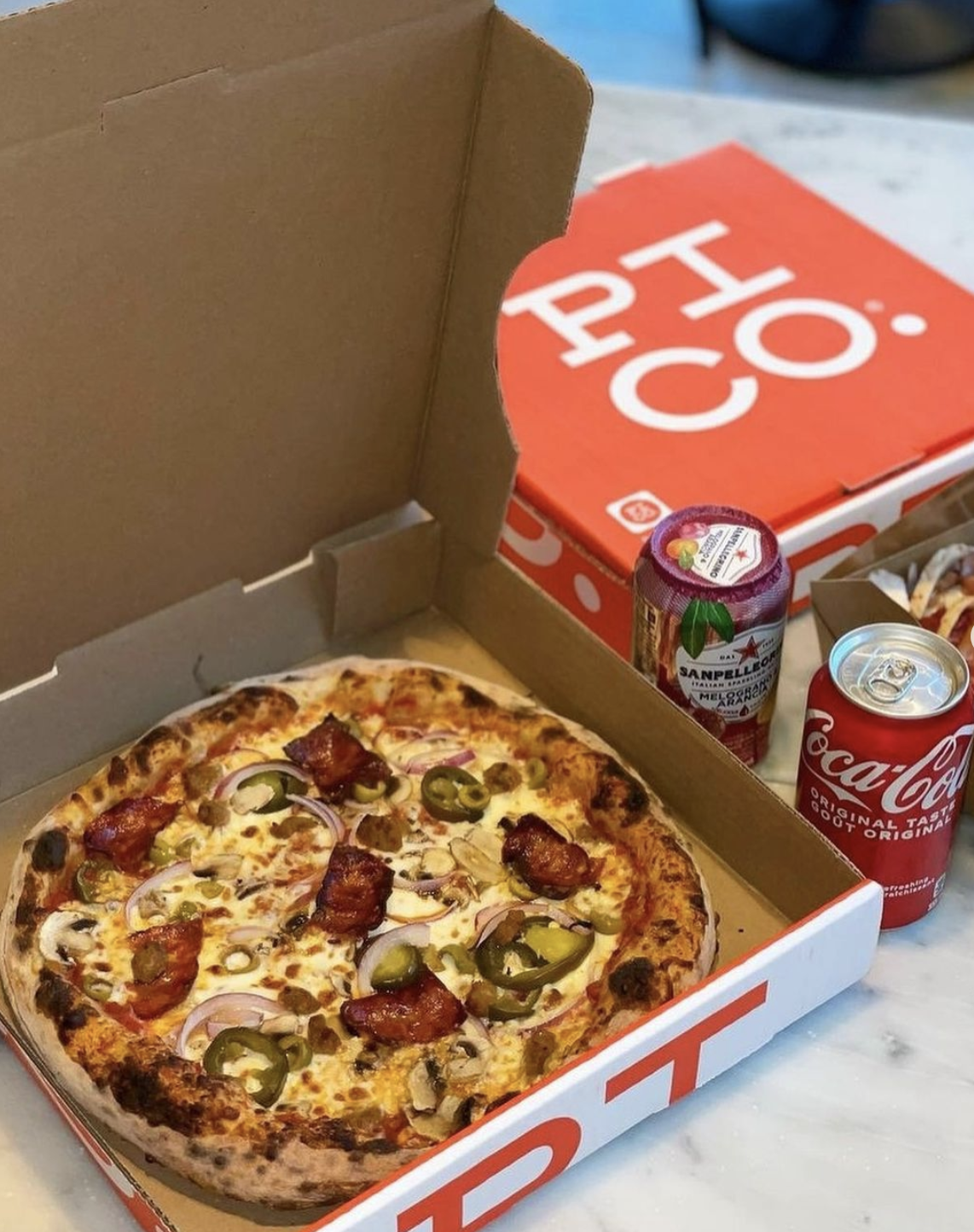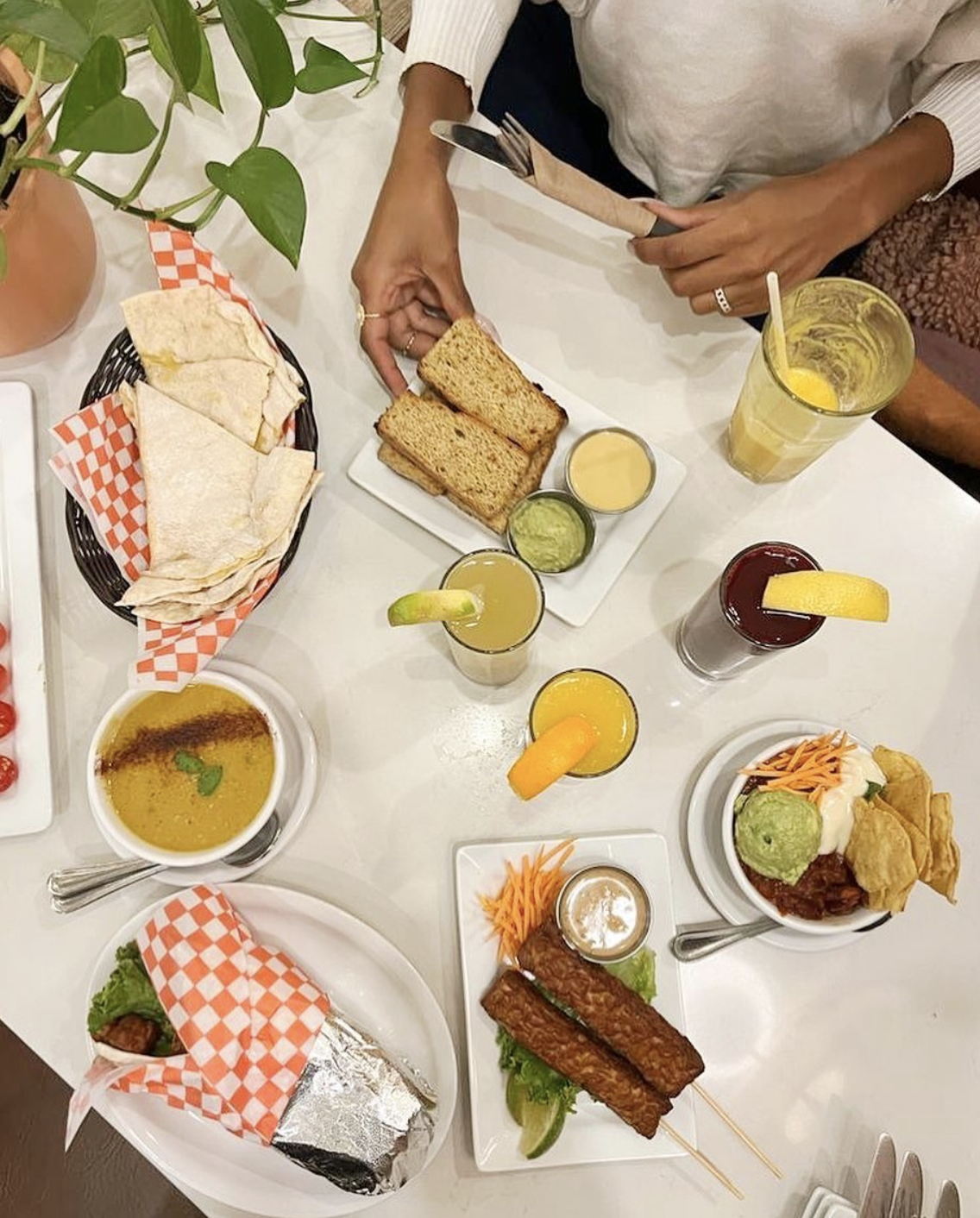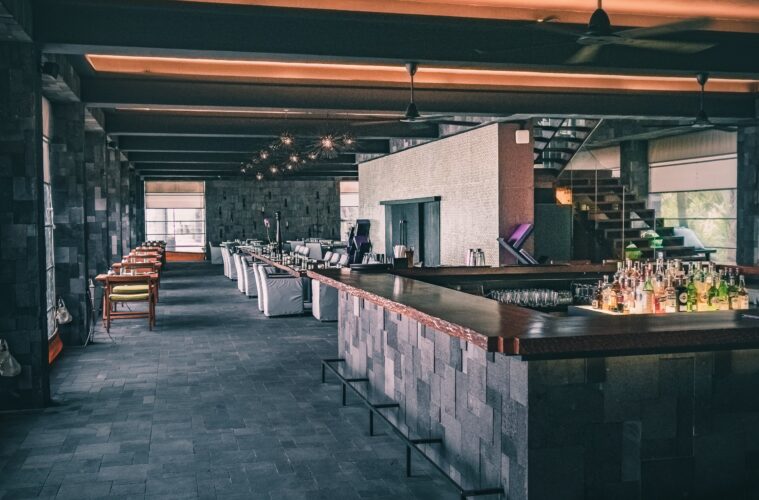Although many businesses have been able to re-open after the hard months of the pandemic, it has not been without its challenges. Reduced capacity limits, labour shortages, and low tourism have continued to plague the hospitality industry.
Undeniably, the hospitality industry has been one of the hardest hits throughout the pandemic. In the Great Toronto Area (GTA) alone, 80% of hotel rooms were vacant and 65 hotels were closed altogether. When it comes to restaurants, the majority were forced to expand their service offerings to include takeout, selling gourmet groceries and even offering cocktails to-go, all in an effort to keep their business afloat.
As the most recent Statistics Canada Canadian Tourism Tracker indicates tourism has not been able to fully recover yet. There is still a long way to go to climb back to its January 2020 peak.

Throughout the pandemic, there have been various private and public funds and resources to aid small businesses. However, SME’s need to be provided with tools that not only help them remain afloat, but also grow and thrive. Known for their personalized approach, institutions like Canadian Western Bank (CWB) have been a consistent source of support for their clients – hospitality included – during the COVID-19 crisis. They have gone the extra mile by providing them with industry-specific expertise, streamlining their business and personal banking, and by helping them rebound and successfully tackle their unique struggles. This included but has not been limited to, evaluating their profit margins and suggesting pivots such as down-sizing menus and changing menu prices to properly reflect expenses to maximize their profits.
Canadian Businesses Affected By The Pandemic
Pi-Co-Pizza was one of the many affected businesses from the hospitality industry in Canada. For them, stock availability, frustrated customers and high prices were some big hardships that affected their daily work.
“It affected our day-to-day operations immensely. Pre-pandemic, we had a backup product/brand for each ingredient we use. When the pandemic started and even today, we began being notified that some of our ingredients were about to become temporarily out of stock to us – from our regular providers, and back-ups too. As such, we had to make or pre-purchase large quantities of items at our central kitchen (flour/gluten-free flour/ our dough balls/Pi Co. tomato sauce/pizza boxes etc) to ensure we didn’t have to list our menu items as ‘unavailable’ for weeks/months on end. This also helped us to better manage day-to-day price volatility, to some extent. Due to certain labour shutdowns and shipping delays etc, there were some products that we just couldn’t get our hands-on, so we must pivot and use a similar product that wouldn’t reduce quality. At times this meant that our food cost was more expensive and profit margins were smaller, but we absorbed these costs, as we did not want to jeopardize quality/customer experience.”

For Restaurant Aux Vivres, the same factors represented a setback on the way they had been managing their operations.
“When we started seeing price increases of up to 15-20% on fresh fruits and vegetables, we had to make some changes. We tightened up inventory control and decided to stock only what was necessary for daily operations. However, as it became clear that rising prices were here to stay, minor price adjustments were made to keep up with rising food costs. It’s a huge ask to make your loyal customers pay more for their favourite meals – no restaurant owner ever really wants to do it, unless it’s necessary. Luckily, our customers have been supportive and understanding. It’s no secret that the price of food will continue to increase in 2022.”

Lessons Learned Through Tough Times
Restaurants, hotels, and other businesses from the hospitality industry have been through some tough times, but there’s always something to learn from bad situations. For them, the biggest takeaway from this experience is to truly be prepared for anything! Keep your team strong and stay motivated. Share the workload as equally as possible. If you have the room to stock some extra takeout boxes, it’s going to give you some peace of mind, especially when there are interruptions in the supply chain.
With the holidays there’s the hope of seeing some light at the end of the tunnel. The biggest advice for Canadians visiting or ordering from stores and restaurants this holiday season is to remember that nobody knows how much longer COVID will dominate the headlines and our day-to-day lives. And it seems like increased government restrictions are forthcoming because of the new variant. Try to support local as much as possible – whether it is picking up takeout or using delivery services like DoorDash, it is so important that we can continue to do so. If you choose to use a delivery service, remember to rate your order – as ratings impact how many orders restaurants receive – and remember to be sensitive to restaurant employees, delivery drivers and everyone working behind the scenes.
Published by HOLR Magazine


